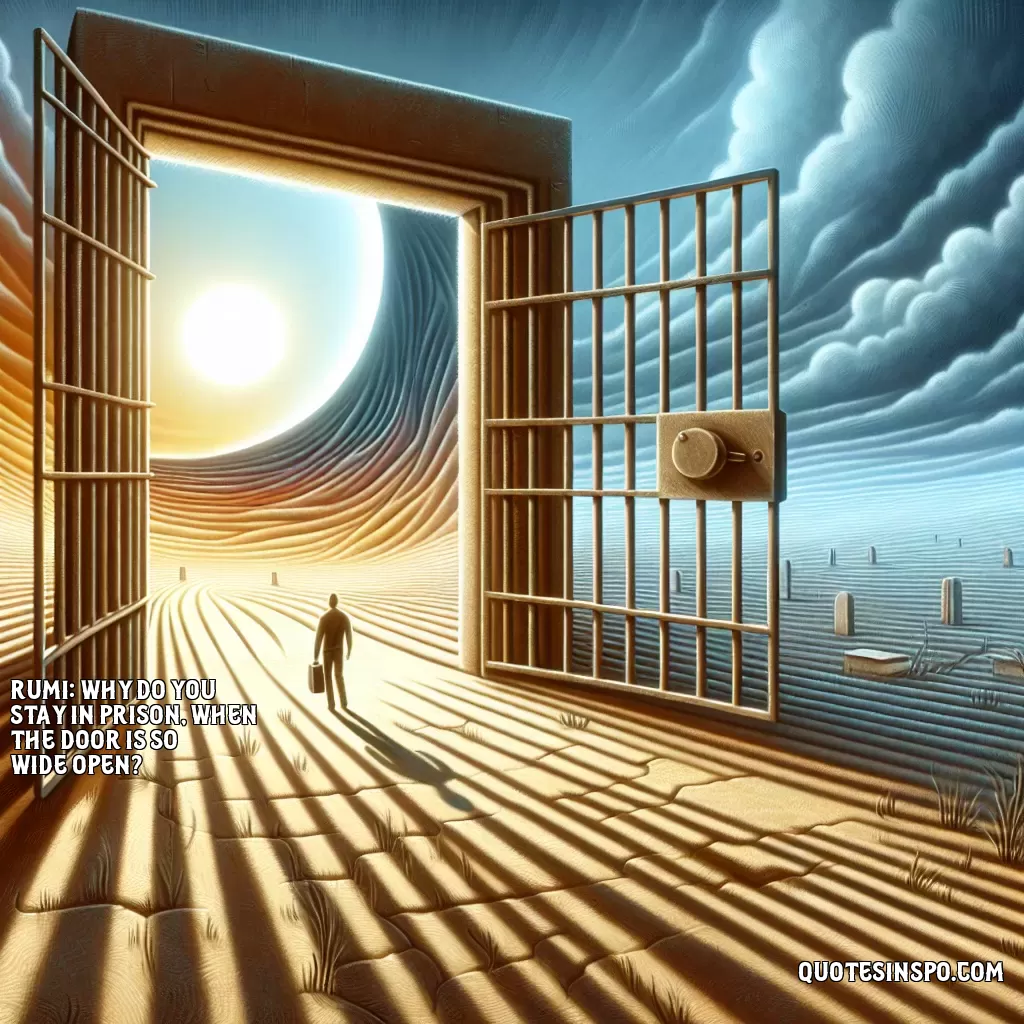
Rumi: Why do you stay in prison, when the door is so wide open?
The quote "Why do you stay in prison, when the door is so wide open?" by Rumi, a 13th-century Persian poet and mystic, carries a profound metaphorical message about self-imposed limitations and the human condition. At its core, this quote challenges us to examine the invisible barriers that restrict our freedom and growth, despite the existence of opportunities for liberation that are readily accessible to us. The "prison" Rumi refers to is not a physical place but a mental or emotional state. It represents the constraints we place upon ourselves through fear, doubt, or negative thought patterns. These constraints may manifest as reluctance to pursue our dreams, hold on to past grievances, or fear of the unknown. Often, these prisons are constructed by limiting beliefs, societal expectations, or internalized judgments that make it difficult to recognize that the power to change our circumstances lies within us. The "wide open" door symbolizes the possibilities and choices available to us when we choose to let go of these limitations. It suggests that liberation and fulfillment are within our reach, but require the courage to step out of our comfort zones. By acknowledging and embracing the open door, we are encouraged to confront our fears, embrace change, and pursue a path of personal growth and freedom. In essence, Rumi's quote invites us to reflect on what holds us back and empowers us to take action towards unlocking our true potential. It serves as a reminder that self-imposed prisons can be escaped if we are willing to acknowledge their existence and have the willingness to walk through the open door of opportunity and transformation.
Quote By: Rumi
Jalal ad-Din Muhammad Rumi, commonly known as Rumi, was a 13th-century Persian poet, Islamic scholar, and Sufi mystic, born in 1207 in what is now Afghanistan. He is best known for his profound spiritual insights and lyrical poetry that explores themes of love, the divine, and the human spirit, with his most famous work being the *Masnavi*. Rumi's influence transcends geographical and cultural boundaries, making him one of the most celebrated poets in the world.
Bio added on: 2025-02-18 01:50:26